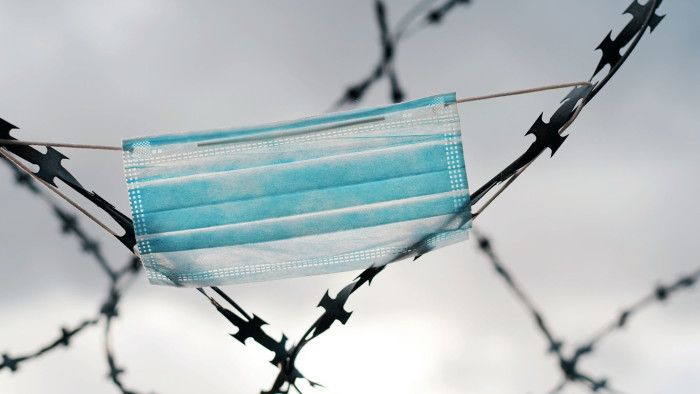
The COVID-19 pandemic, and responses to it, have had an unprecedented impact on criminal justice in the UK. Since March 2020, courts have closed their doors to all but essential business and are conducting more hearings remotely. Suspects and defendants have found themselves further isolated as their access to essential support, including legal advice, is severely restricted due to health and safety concerns.
As the UK slowly recovers from the pandemic and emerges from the lockdown, it is crucial that the true impact of COVID-19 on the criminal justice system is better understood, so that appropriate measures can be taken to address the remaining challenges and the longer-term impact of the crisis. Experts have predicted the likelihood of a successive of infections, and the possibility of reintroducing restrictions in the coming months and years, and experiences of criminal justice proceedings from the past three months will provide valuable lessons for the future.
Over a period of 2 weeks in May 2020, Fair Trials conducted a survey of individuals at the frontline of the criminal justice system, including defence solicitors, barristers, accredited legal representatives, judges, magistrates, police officers, CPS staff, and appropriate adults. They were asked to share their opinion of how COVID-19 had impacted fair trial rights in England & Wales since the lockdown began. We received 89 responses in total, the majority of which were from defence lawyers.
The results of the survey paint a deeply worrying picture of the criminal justice system in England & Wales under lockdown. Courts and police stations across the country have faced unprecedented challenges due to COVID-19, and drastic deviations from ordinary criminal procedures have had to be made to ensure the continued functioning of the justice system under these very unusual circumstances. However, it is apparent from the responses that the rights of defendants have, in practice, been largely overlooked, and it is questionable whether initiatives to safeguard suspects’ and defendants’ rights and their safety have worked effectively so far. As one respondent to the survey summarised:
“The rights of the defendant, and considerations for the defendant, are being eroded to the point where they are non-existent.”
Results of this survey show that:
- Suspects in police custody are getting poorer quality legal advice and assistance, as solicitors’ access to their clients and their attendance at police interviews are severely restricted;
- There is limited adherence to COVID-19 related health and safety standards in police stations, endangering public health, and putting the lives of suspects, defence lawyers, police officers, and their families at risk;
- Remote hearings are having an adverse effect on defendants’ right to access effective legal assistance, to participate effectively at their own hearings, and to review and challenge information and evidence being presented; and
- COVID-19 is causing lengthy and indeterminate delays to criminal proceedings, and custody time limits are being extended routinely due to those delays, meaning defendants are spending longer in pre-trial detention.
We also found that there was a lack of consistent approach across courts and police stations in England & Wales, regarding the physical and procedural adaptations they were making in response to COVID-19. This seemed to indicate that the level or protections for fair trial rights, and for the health and safety of those involved in criminal proceedings, varied according to which police station or court the proceedings took place, and which police officer or judge was in charge of those proceedings.
It is clear that many of the challenges identified in this survey are not confined to the several months in which the lockdown has been in place. So long as COVID-19 continues to be a generalised risk to the public, precautions (such as social distancing and the use of PPE) will need to be taken at courts and police stations for the foreseeable future, continuing to create obstacles for the exercise of defence rights. Already, we are beginning to see that COVID-19 is creating a long-term legacy of delays and backlogs to the criminal justice system, which in the absence urgent action from the government to enhance capacity, could create extraordinary challenges and serious human rights violations.


